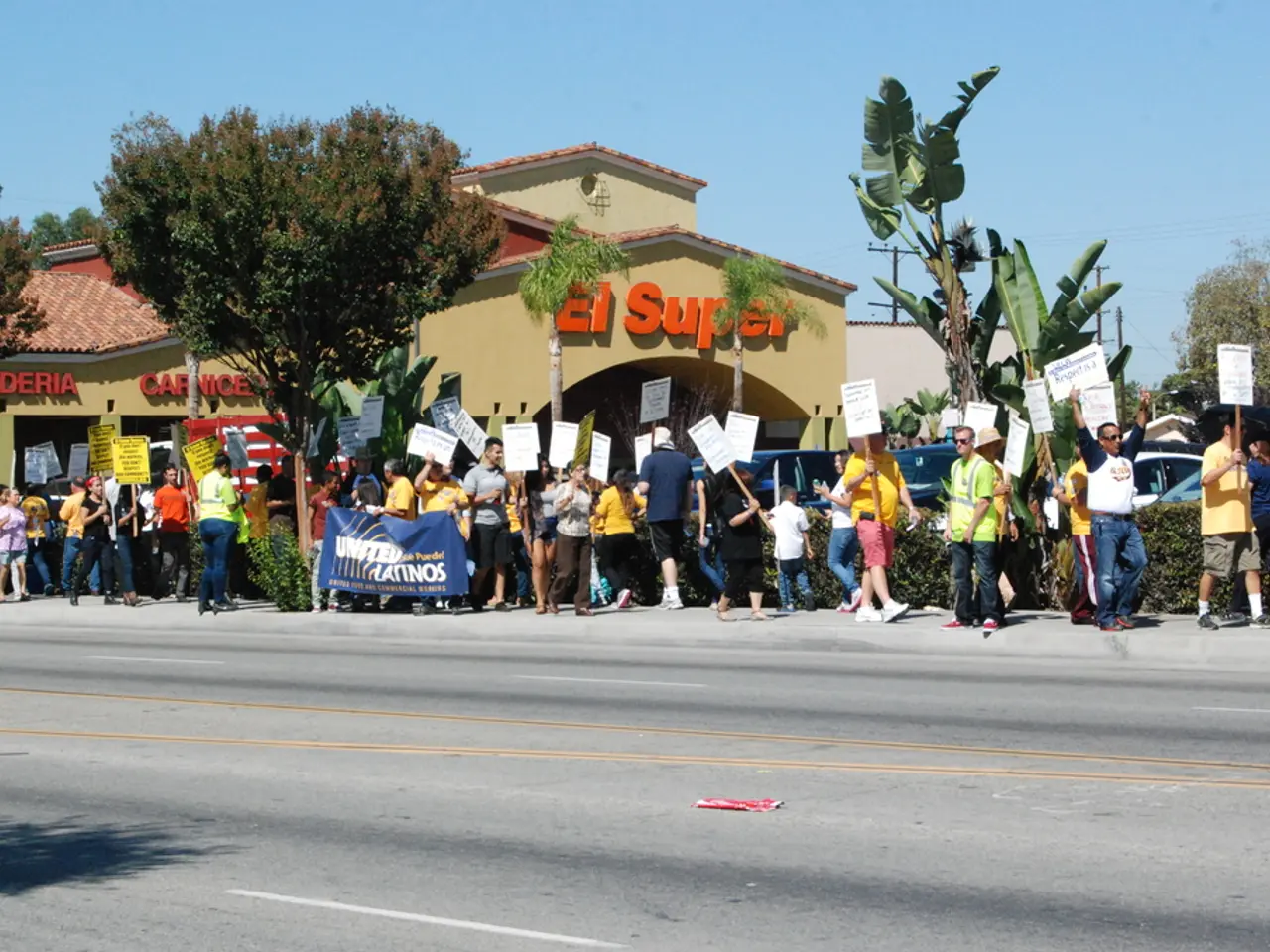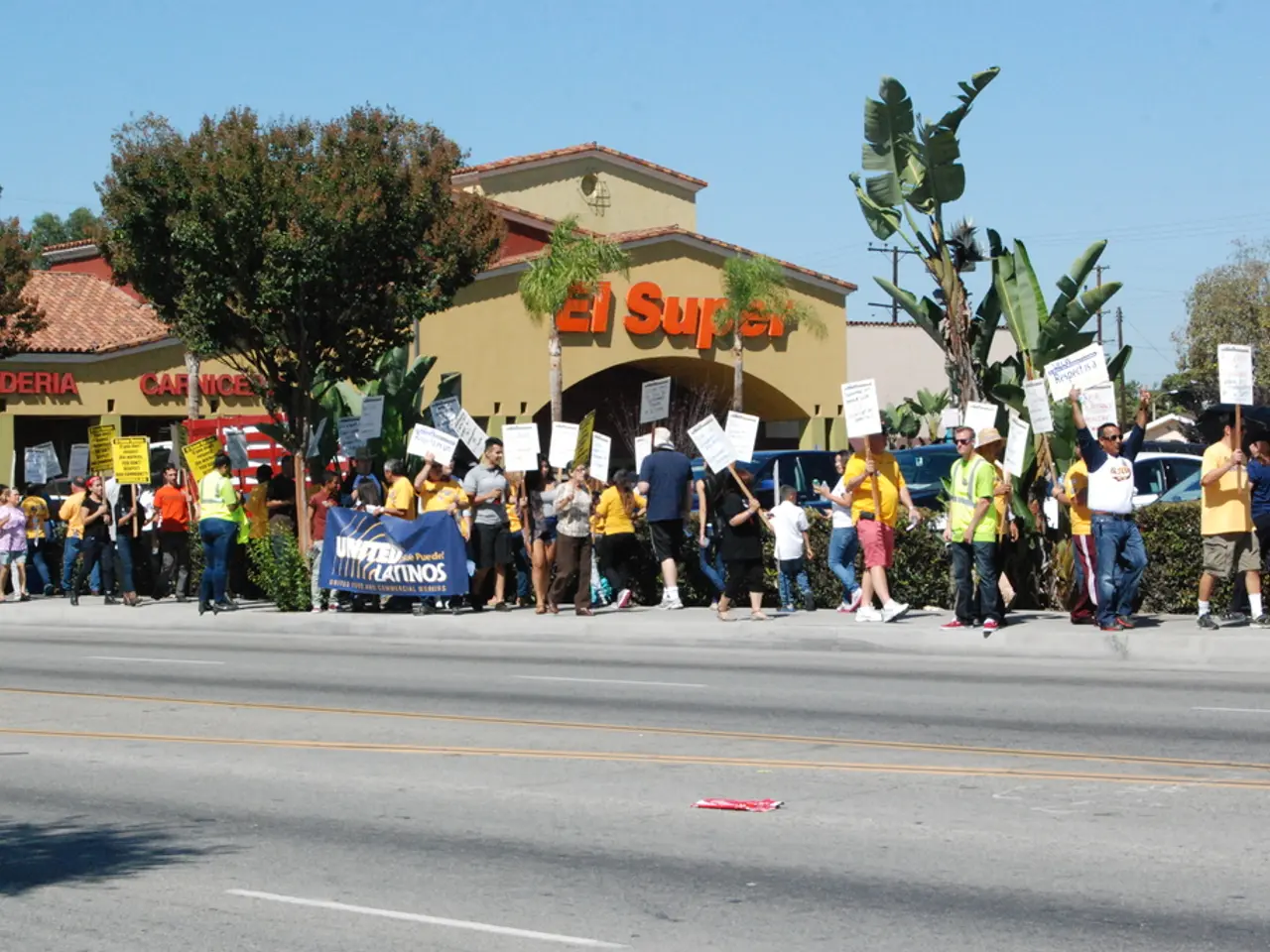Advocates for sexual assault survivors' rights push for closure of legal gaps, allowing victims in Texas to seek justice. Yet, the question remains: why aren't more states following suit?
Crossing the Line: Taking Action Against Voluntary Intoxication in Sexual Assault Laws
It was a chilly February day in Austin, Texas, when Summer Willis, a mother of two, began her 4 a.m. journey to crawl the distance of the marathon. Her mission: to advocate for a change in the state's sexual assault legislation that had left victims like her with no justice.
After 22 grueling hours, Willis crawled for 13 miles before she collapsed, only to realize she was standing right outside the site of her own rape - a disturbing incident that happened 10 years ago at a University of Texas fraternity party. The tragedy of Willis's story lies in a loophole in Texas law: she was drugged without her knowledge but was considered incapable of consent because she had willingly accepted the drink she was given before the attack[1].
The core issue revolves around the definition of consent. Texas, like many other states, failed to clearly outline consent for victims who were voluntarily intoxicated, making their cases nearly impossible to prosecute[1].
Willis decided to channel her agony into action, standing up for herself and the countless other survivors who suffered in silence. Her determination led to the passage of the Summer Willis Act, which Texas Gov. Greg Abbott signed on June 20, closing the loophole and enforcing laws prohibiting scenarios where a victim is incapacitated due to intoxication[1].
"I'll never get justice from this bill. It's not retroactive, but I know that every victim from the day of the signing... won't have to be told it doesn't count," Willis said, expressing her relief[1].
Two years before her march to the Capitol, Willis started running marathons for her own healing, some with a mattress on her back. Her organization, Strength Through Strides, has since raised tens of thousands of dollars for survivors, gaining attention in the wake of numerous high-profile sexual assault cases[1].
Sexual assault cases are at the forefront of public attention this month with the trial of music mogul Sean "Diddy" Combs and the ongoing legal complications for disgraced movie producer Harvey Weinstein and President Donald Trump. Advocates hope that the sweeping exposure of these cases will encourage survivors to come forward[1].
But despite the heightened awareness and efforts to change the status quo, many states, including over 20 where a form of the intoxication loophole still exists, still fail to fully protect victims[2][3]. Some experts argue that the deeply-rooted issue of victim blaming in the legal system has hampered policy change[2].
Transitioning cultures and challenging long-embedded beliefs are hard tasks, and that stands true when it comes to shifting perspectives on sexual assault[2]. Despite obstacles, lawmakers are striving to make progress. For instance, New York has been trying for at least six years to close its state's intoxication loophole[2].
In some instances, it only takes one courageous voice to spark change. Willis, through her resilience and determination, has become a face of the cause and inspired activists in other states to follow suit[4]. Armed with stories like those of Willis, advocates can lobby for reform, pushing for legislation that clarifies the definition of consent and protects victims regardless of voluntary intoxication[3].
Enrichment Data:
Overall:The difficulty in passing laws that protect sexual assault victims who were voluntarily intoxicated in more than 20 states can be attributed to several key reasons:
- Legal Distinctions Concerning Voluntary Intoxication Many states treat sexual assault differently when the victim was voluntarily intoxicated, creating what is often called a "voluntary intoxication loophole." This loophole can prevent prosecutors from charging or convicting perpetrators if the victim willingly consumed alcohol or drugs before the assault. Prosecutors sometimes argue that voluntary intoxication complicates the question of consent, making it harder to prove lack of consent beyond a reasonable doubt[1][3].
- Challenges in Defining Consent under Intoxication The legal definition of consent varies widely across states. Historically, some laws have required proof that the perpetrator knew the victim was incapacitated or that the act was planned in advance. This narrow interpretation excludes many cases where the victim was impaired but did not explicitly communicate an inability to consent. For example, under previous Texas law, prosecutors declined to pursue cases if the victim had voluntarily accepted a drink and the assailant had not planned the assault, leaving survivors without legal remedy[3].
- Legislative and Political Resistance Even when there is legislative support for reform, political leaders or specific lawmakers can block bills aimed at closing these loopholes. In New York, for instance, the state Assembly speaker Carl Heastie blocked rape law reforms despite support from district attorneys and advocates to close the voluntary intoxication loophole[1]. This reflects broader political challenges and differing opinions about how to balance protections for victims with defendants' rights.
- Complexities in Evidentiary Requirements Proving sexual assault cases involving intoxicated victims often requires complex evidence, including toxicology reports and timelines of impairment. In cases where drugs like GHB (a common date rape drug) are involved, it is difficult to establish exactly when the substance was ingested and the victim’s level of incapacitation at the time of assault, complicating prosecution[1].
- Social and Legal Ambiguities about Responsibility There is societal debate about the degree of responsibility a person who voluntarily ingests intoxicants has in protecting themselves, which influences legal standards. Some lawmakers and legal systems are hesitant to fully remove "voluntary intoxication" as a factor limiting prosecution due to concerns about personal accountability, complicating efforts to pass stronger protective laws[1][3].
In summary, the difficulty in passing laws protecting sexually assaulted victims who were voluntarily intoxicated stems from entrenched legal loopholes distinguishing types of intoxication, varying and narrow definitions of consent, political resistance, evidentiary challenges, and social/legal debates about victim responsibility. Recent reforms like Texas’s Summer Willis Act, which clarifies incapacitation and consent, show progress but highlight the complexity and ongoing struggle across many states to enact comprehensive protections[1][3].
- US politics and policy-and-legislation are preventing sexual assault victims in more than 20 states from receiving justice due to the voluntary intoxication loophole, a deeply-rooted issue that challenges legal systems and reflects debates about personal accountability and responsibility.
- This general-news story highlights the struggle in the crime-and-justice sector, where victims of sexual assault are denied justice due to the voluntary intoxication loophole, and emphasizes the need for policy change to clarify the definition of consent, protect victims, and challenge cultural biases and legal loopholes that hinder progress.







